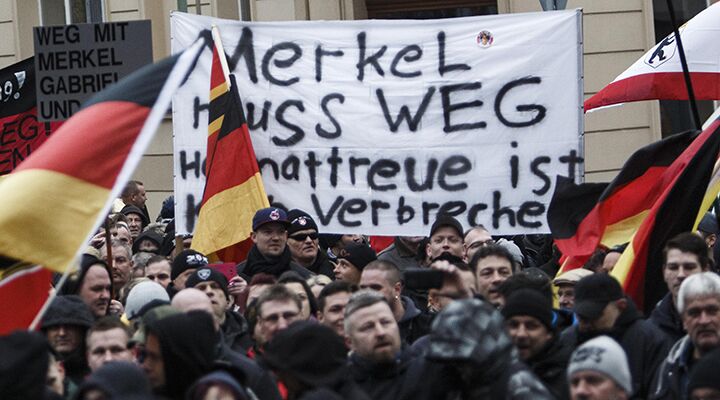
The Majority of Germans Say Islam Is Not a Part of Germany
“Islam belongs to Germany,” said Chancellor Angela Merkel in a speech in January 2015 after a meeting with Turkish Prime Minister Ahmet Davutoğlu. A few months later, honorary chairman of the Christian Social Union Edmund Stoiber expressed his strong opposition to that statement. Now a majority of Germans are taking the same stance as Edmund Stoiber.
Stoiber told Bild that he would not adopt Merkel’s proposal. “Muslims belong to Germany,” he said, “but Islam doesn’t. Islam is not a core element of German culture and doesn’t influence our intellectual history and tradition” (Trumpet translation throughout).
A recent survey conducted by Bild indicates that many Germans view their culture the way Stoiber does. Sixty-one percent of Germans view Islam as being “not a part of Germany.” This is almost 10 percent more than in September 2014, when 52 percent of German citizens did not agree with former President Christian Wulff when he said, “Islam already belongs to Germany.”
The growing rejection of Islam in Germany is due to the refugee crisis. Though 49 percent of Germans still believe that Muslims are part of Germany, their numbers are falling. That’s why many Germans support the Alternative for Germany party (AfD). Since AfD campaigns primarily on its rejection of Islam, some refer to it as the “anti-Islam party.”
With the growing rejection of Islam comes a growing fear of terrorism. Forty-six percent of Germans now fear Islamic attacks on German ground. This comes as no surprise to German Protection of the Constitution chief Hans-Georg Maaßen, who recently warned that “Brussels and Paris are just the beginning.” Wolfram Weimer summed up his warning for N-tv, saying:
In short, the large number of uncontrolled incoming refugees threatens Germany’s security. The extremist scene of the Islamists in this country is becoming “very dynamic.” Its members have more than doubled—the Protection of the Constitution counts about 8,060 people. In many backyard mosques in Germany, Arabic-speaking preachers have openly advocated violence. Meanwhile, 90 mosques are under observation. This is a thunderclap of information; because Maaßen is speaking against the political correctness of public debate that terror sprouts in many mosques.
The growing disagreement with the chancellor’s beliefs on Islam, her refugee policy, and the growing fear of terrorism is causing the German people to seek different leadership. Two thirds of Germans now say that they don’t want Merkel to continue as chancellor after next year’s elections. Germany is looking once again for a strongman, one who will defend their Christian values. This trend is something the Trumpet has been watching for years. Germany is prophesied to revive its Christian roots and, in so doing, oppose Islam. For more information, read “Looking to Charlemagne” by editor in chief Gerald Flurry.
